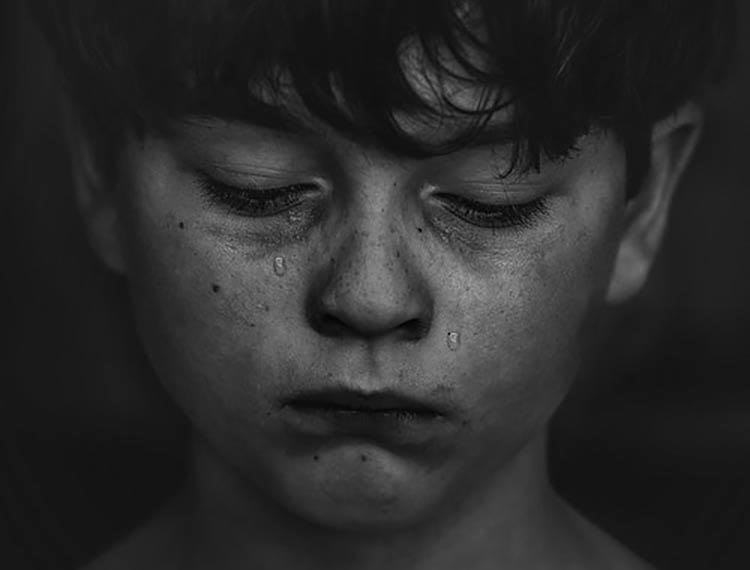Hidden: Children at risk during lockdown

Anne Longfield, Children’s Commissioner for England, is today (Saturday) publishing analysis of the extent of child vulnerability around the country, warning that much of it is hidden from sight under lockdown.
Govt must protect vulnerable children with emergency taskforce
Responding to the Children’s Commissioner for England creating local area profiles of child vulnerability during Covid-19, Liberal Democrat Education spokesperson Layla Moran said:
“It’s deeply worrying that so many vulnerable children may not have the support they need during the lockdown. The analysis from the Children’s Commissioner for England shows just how large the scale of the challenge is. The Government can and must do more.
“The well-being of these children and their families during the lockdown must be paramount, and the Government should proactively work to find all those kids invisible to the system.
“Liberal Democrats have called on Ministers to convene an Emergency Vulnerable Children Taskforce, including headteachers, police, NHS and social services to ensure best practice is being shared. We must have an absolute assurance that in these trying circumstances safeguarding our most vulnerable children remains a top priority.”
Cllr Judith Blake, Chair of the Local Government Association’s Children and Young People Board, said:
“Councils are very concerned about the impact of the coronavirus pandemic on vulnerable children, including both those who already have social workers and those who become more vulnerable as a result of lockdown measures.
“Referrals to children’s social care have fallen by more than half in many areas and councils continue to work closely with local partners and communities to identify children who may be at risk.
“Understandably, many families are concerned for the health of their children and other family members if they attend school. Councils are working with schools and families to provide reassurance, and to make sure that where children aren’t in school, they are still being spoken with regularly.
“It is essential that local safeguarding partners, including councils, the police and health, have the resources and capacity they need to keep children safe, and that communities know how to spot signs of risk and how to report these.”
Rebecca Long-Bailey MP, Labour’s Shadow Education Secretary, responding to the Children’s Commissioner’s Report ‘Hidden: children at risk during lockdown’, said:
“The Government cannot ignore the vulnerable children identified in this report, who are at heightened risk during the Covid-19 outbreak. It is imperative that the Government ensures that social care and schools are urgently working to identify and support vulnerable children and their families.
“Yesterday, the Government significantly relaxed statutory duties on local authorities to protect vulnerable children. In light of this report, it is even more urgent that the Government guarantees these changes will not adversely impact children in need and commits to reversing them if there is any evidence they are doing so.
“Ministers must also alleviate the financial pressures on families which may be making the situation even worse, including ensuring urgent access to food where the free school meal voucher scheme is failing.’’
Tulip Siddiq MP, Labour’s Shadow Minister for Children and Early Years, responding to emergency legislation relaxing local authorities’ statutory duties to vulnerable children, said:
“Vulnerable children, children in care and care leavers face huge challenges in this crisis. Many will be under even more pressure at this time, so it is vital that their needs continue to be met.
“Of course we understand the huge pressures that councils are under at the moment and the need to prioritise the most urgent obligations to those in need. But we must ensure that this significant relaxation of councils’ duties to protect vulnerable children does not increase the risk of harm and is strictly temporary.
“The Government must collect and publish information about any statutory obligations that aren’t being met and assess the impact. If these changes lead to bad outcomes for the most vulnerable children, Ministers must immediately reconsider their approach.”
A Department for Education spokesperson said:
“Schools and early years settings remain open for vulnerable children, who are encouraged to attend where it is appropriate for them to do so. We thank social workers and everyone involved in keeping these children safe at this time for their hard work, including continuing to conduct risk assessments and home visits where needed.
“Local authorities are receiving additional funding of £3.2 billion to cope with pressures, including in children’s social care and we have set up new teams working around the country to improve the information we hold about the risks facing these children. We are also providing £1.6 million for the NSPCC to expand its helpline so that adults can report their concerns about a child’s wellbeing, and have announced more than £12 million for projects tackling the increased risk some children and young people are facing.”
“We are working closely with local authorities and other safeguarding partners, including the police, to support families and protect children at this challenging time. As part of this work, NHS Digital announced the launch of a new tool which provides data on protected vulnerable children to strengthen protection for children at risk of abuse.
“We have provided guidance to help ensure that removing risks to children remain at the forefront of all efforts during this pandemic and we are supporting social workers, including those returning to the profession, to help of the frontline – to focus on those in the most urgent need
“Some vulnerable children, including those with an Education, Health and Care Plan, may be able to be safely cared for at home. Schools are working with parents and local authorities, including social workers, to make decisions about what is best for each child on a case-by-case basis. We are ensuring better data sharing between all safeguarding partners, so the NHS, police, social workers, school nurses and health workers have the information they need to protect children at risk of abuse.
“New teams of Department for Education and Ofsted staff are leading work around the country to gather data on vulnerable children’s attendance at school or other settings, providing an overall picture of the risks facing these children so that councils can follow best practice. The Government has provided additional funding of £3.2 billion for local authorities, helping them meet additional demands including within children’s social care services at this time.”












Responses